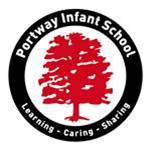SEND (Special Educational Needs & Disabilities) Training. At the heart of what DTSA is about, is exploring the best education for all children in all schools. After an initial survey with local SENDCO’s (Special Educational Needs & Disabilities Co-Ordinators) it was found that specialist training in this area was lacking and that SENCO’s were burning out too quickly with a feeling that they were unsupported in their roles without specialist training.
To encourage teachers and SENDCO’s to stay in the profession within our local area is a priority for DTSA and so we are funding SEND training needs across the East Midlands area to help keep these valuable professional supported in their roles to help maintain teacher retention rates.
Other Charitable Activities
Learn about more of DTSA’s charitable activities and the work being delivered in schools by following the links to these pages:
➡️ School Trips
DTSA have supported the following schools
Pear Tree Infant School and Walbrook Nursery School
DTSA funded the SENCO who works across both schools, to complete NASCO – National Award for SEN Coordination, a mandatory qualification for SENCOs.
“The school is in a deprived part of Derby, with our demographic comprising of above national average EAL (English as additional language), above average of disadvantaged children and above average of children with SEN. The bespoke needs of school in relation to the servitude to Roma Gypsy community requires a great deal of additional resourcing.”
DTSA funded a SENCO who works in the teacher-led Nursery School, to complete NASCO – National Award for SEN Coordination, a mandatory qualification for SENCOs.
The Nursery School has shared a SENCO with another local Nursery School for a number of years. A SENCO now works in school with the children, to improve the provision and get the early help needed for starting primary school in order to “raise the bar and close the gap for the progress and achievement of all children.”
Ridgeway Infant School hired a new SENDCo, and wished for them to engage with the NASCO programme. The programme fully meets DfE requirements, and equips participants with the skills and knowledge necessary to coordinate their school’s SEN provision.
The school has a strong reputation for SEND and inclusion, with a higher than national average percentage of children with EHCP’s to support. As such, it’s important that their staff receive the best training possible to support their student’s complex needs. They have an extensive SEND team, which is managed and co-ordinated by the SENDCo, maktheing importance of high-quality training a top priority for the institution.
With Meadow Farm Community School’s SENDCo on maternity leave, a new SENDCo was hired to cover this period of absence.
“The training ensured that the SENDCo is up to speed with the latest methods and processes, giving them greater direction for their work within the new school. In addition, the training will give the new staff member a greater network of SEND contacts for support, guidance and the sharing of practices.”
The school hopes that this training will allow the new SENDCo to make a good start at Meadow Farm, providing them with all the support needed to be effective in their workload, direct their support where it is needed, and be well informed in this area.
Silverhill wanted their new SENCO to undertake the National Award for SEN Co-Ordination, run by Best Practice Network.
Gaining this award is an excellent opportunity for professional development, which the school hopes will increase the confidence, knowledge and understanding of their SENCO and the role which they hold, allowing them to reflect upon and improve their practice. They will be able to oversee the day-to-day operation of the school’s SEN policy, co-ordinate the provision for SEN children, and provide necessary guidance and support to both the school staff and the parental community.
“The course will enable the SENCO to draw upon relevant research in relation to the teaching and learning of Silverhill’s SEN children which development and implementing new strategies for improving the learning outcomes for pupils with SEN and/or disabilities.”
DTSA funded a staff member at Meadow Farm Community School to undergo ELSA training, to help them better support the needs of SEMH pupils.
“We have many mobile pupils and our school stability is 68% (well below national average). A proportion of pupils arrive at our school with SEMH difficulties – either diagnosed or undiagnosed. Having an ELSA trained member of staff will really benefit our pupils in the following ways:
- to settle into our school and transition from a different school or home schooling.
- to support with establishing a friendship group eg: circle of friends
- to support with any trauma the child has experienced.
- to support our pupils to attend school every day (our mobile pupils often have a history of poor attendance)
- to support our pupils with any wider issues of SEN linked to anxiety ie: those diagnosed and undiagnosed with autism.
- to provide interim support for pupils who are waiting for a SPOA acceptance or a referral to an external wellbeing service.
Alongside this, our ELSA trained member of staff will provide support to other Teaching Assistants in school so that we can cascade the training to others in school.”
Emotional Literacy Support Assistant (ELSA) Training and Supervision
About ELSA
ELSA is a nationally recognised training programme developed to build the capacity of schools to support the emotional needs of their pupils from within their own resources. The training improves Teaching Assistants’ understanding of emotional dysregulation and develops their skills so that they can deliver effective individualised support programmes to meet the emotional needs of children and teenagers. Pupils supported by ELSAs develop their self-awareness and self-management skills so they can successfully identify and regulate their emotions and become more emotionally resilient.
Aims of the Programme
- To train ELSAs to plan and deliver programmes of support to pupils in their school who are experiencing temporary or longer term additional emotional needs. The majority of ELSA work is expected to be delivered on an individual basis.
- To provide on-going professional supervision to help maintain high quality in the work undertaken by ELSAs, thereby helping to ensure safe practice for ELSAs and pupils alike.
Murray Park applied for funding for bespoke whole team Level 2 training from Team Teach.
The Team Teach training was beneficial for their staff and students, allowing staff to develop skills in:
- Understanding Behaviour
- All Behaviour is communication
- Circles of Influence
- Conflict Spiral
- Planning & Risk Assessment
- De-escalation and De-fusion
- Verbal & Non-Verbal Communication
- Repair, Reflection and Review
- Positive Handling
It allowed the AP team to promote the wellbeing of SEND and support disadvantaged students through suppotive behaviour managment, targeted mentoring leading to an increase in positive mental health.
Cavendish Close Infant and Nursery School
Two training session were delivered to the full staff team at Cavendish Close Infant and Nursery School, providing excellent value for money: 12 teachers, 2 learning mentors, 15 teaching assistants and 4 midday supervisors – 31 staff members in all.
The school’s preferred training model is to train their full staff team as ‘everyone is a teacher of SEND’, which enables their provision as a whole to progress allowing consistency for all children.
Session 1: ‘Emotional regulation interactive training for staff’, delivered by Educational Psychologist, JEM Psychology Ltd.
The workshop event covered the learning points outlined below to refresh the knowledge and skills of all staff. The session emphasised the importance of utilising a whole school approach to meeting the emotional literacy needs of all pupils in school, but particularly for those pupils experiencing difficult or uncomfortable emotions:
- short overview of Emotion Coaching including the social engagement and stress arousal systems
- short overview of Zones of Regulation including self-awareness, emotional expression and social awareness
- how the two approaches complement one another
- practical activities for implementing and embedding both approaches
- opportunities to share good practice and recent successes
Session 2: ‘An introduction to attachment, trauma and loss: To understand what attachment, trauma and significant loss are and how they affect behaviour and learning, and to explore strategies to support pupils with insecure attachment’, delivered by trainers C. Schloss and A. Fower.
Staff are better at recognising and supporting the emotional needs of their pupils who have experienced trauma, neglect etc. as a result of receiving the training, with the impact being:
- A positive impact on the classroom environment, promoting secure attachments between the teacher and pupils.
- Helping staff to create a positive supportive classroom ethos to impact pupil emotional wellbeing and academic performance.
- Helping to develop secure attachment styles.
- Helping the staff to understand their emotions and that of others.
Session 3: ‘Emotional regulation interactive training for staff’, led by trainer Dr Judith McAlister.
The workshop event covered the learning points outlined below to refresh the knowledge and skills of all staff. The session emphasised the importance of utilising a whole school approach to meeting the emotional literacy needs of all pupils in school, but particularly for those pupils experiencing difficult or uncomfortable emotions and looked at:
- Emotion Coaching including the social engagement and stress arousal systems
- Zones of Regulation including self-awareness, emotional expression and social awareness
- How the two approaches complement one another
- Practical activities for implementing and embedding both approaches
- Opportunities to share good practice and recent successes
Session 4: ‘An introduction to attachment, trauma and loss’ delivered by C. Schlos and A. Fower.
This session was held to understand what attachment, trauma and significant loss are and how they affect behaviour and learning.
Staff who receive the training are often better at recognising and supporting the emotional needs of their pupils who have experienced trauma, neglect etc:
- It positively impacted upon the classroom environment, promoting secure attachments between the teacher and pupils.
- It helped staff to create a positive supportive classroom ethos to impact on pupil emotional wellbeing and academic performance.
- It helped develop secure attachment styles.
- It helped the staff to understand their emotions and that of others.
Tuition fees for staff member to gain NASENCO qualification.
The training has expanded the capacity of the school’s SEND provision in their primary setting. By having a fully qualified colleague with the NASENCO qualification in the setting full time it enables them to provide swifter support around diagnosis, intervention and support as well as providing wider advice to parents and other care givers.
Long Row Primary and Nursery School
A staff member will receive the National Accreditation of SEND (NASCO) qualification, delivered by the University of Derby.
A staff member will receive the National Accreditation of SENCO (NASENCO) qualification.
A staff member will receive the National Award for SEN Coordination (NASENCO).
Our current SENCO is in role but needs to complete the qualification before the end of next academic year.
It is important that our SENCO keeps up to date on all matters relating to SEND and develops a comprehensive understanding of the background legislation, policies and evidence that are key to inclusion and SEN provision – this qualification will support this area.
The training will help her draw on a broad range of evidence, policy and resources and work with others to influence the delivery of inclusive education.
As SENDCO and working alongside the leadership team, training will allow her to design, implement and evaluate interventions effectively in our setting to improve the outcomes of our SEN pupils
The training will help her develop her leadership and staff management skills with multiple stakeholders thereby enhancing her own personal and professional development.
All staff were given INSET training from a WalkThrus SEND specialist trainer.
We currently have 31.6% students on the SEN register meaning our staff must be highly skilled in meeting the needs of these students. As a school we are using the WalkThrus CPD package to support staff in improving their practice.
We have a gap in outcomes between SEND and non-SEND students and by providing staff with specialist training via an outside specialist, from a platform they already trust and use as part of their day to day practice, will be impactful in providing them with strategies that will work with a range of students with SEND needs.
It is hoped the training will lead to further developing our inclusive approach, as well as securing stronger outcomes for SEND students in the future.
A member of staff was given ELSA Training to increase their knowledge and effectiveness within the school.
We have many mobile pupils and our school stability is 68%. This is well below average nationally. A proportion of pupils arrive at our school with SEMH difficulties – either diagnosed or undiagnosed. EG: our most recent admission has been described by social care as a hidden child, having never been in a school before nor has accessed any universal services since being born. He has been admitted into Y5. We know there are underlying trauma issues and possibly wider SEN needs (to be established).
- to settle into our school and transition from a different school or home schooling.
- to support with establishing a friendship group eg: circle of friends
- to support with any trauma the child has experienced.
- to support our pupils to attend school every day (our mobile pupils often have a history of poor attendance)
- to support our pupils with any wider issues of SEN linked to anxiety ie: those diagnosed and undiagnosed with autism.
- to provide interim support for pupils who are waiting for a SPOA acceptance or a referral to an external wellbeing service.
The biggest impact for us is that the child has managed the transition into our school, has had the appropriate support at the start of their school journey with us so they are able to attend school, learning every day and forming health positive relationships with their peers. It also enables us to build a strong and supportive partnership with our parents.
Staff were given a one-hour twilight training course on how to better support SEND children with their information retention.
The workshop covered the brain and understanding how we retain information, how this applies to teaching and learning with a specific focus on children with special educational needs, and consideration of the interventions and support that therefore will help them. We aimed for staff to leave having a better understanding of the brain and how we retain information, as well as how they can therefore adapt their teaching and intervention practices to support pupils in their learning and recall so that they can progress. We wanted all staff who work with our children (both as teachers and teaching assistants) to be trained in these memory techniques so they had the knowledge needed to adapt their teaching and learning to better support their classes.
Thirteen members of staff were given Positive Handling Training to meet the needs of pupils within the school.
Staff will continue to effectively meet the needs of pupils with challenging behaviour, aggression and violence.
-
- Reflect on their awareness of self-regulation and de-escalation skills linked to trauma and attachment.
- Understand the legalities around restraint and reasonable force
- Learn and practise memorable, least intrusive positive handling techniques
Ten SEND children were given a Play Therapy session within their school. While this is outside of the normal SEND training funding that DTSA provide, we felt it was a valuable and worthy use of the funding and so agreed to cover this session for Markeaton.
The impact of Play Therapy on the SEND children we have identified will be significant. The children we have identified have social and emotional behaviours identified as their primary area of need on their EHCP (education and healthcare plan) so any therapeutic approaches would enable us, and them, to make notable progress towards the targets they have been set.
Play Therapy is a unique and proven approach to supporting children who struggle to vocalise their emotions, regulate their behaviours and build positive relationships with peers so having it in action at Markeaton would be amazing. Post Covid we have seen a sharp increase in the number of children would need a therapeutic intervention so we really want to help them with this if we can.
















